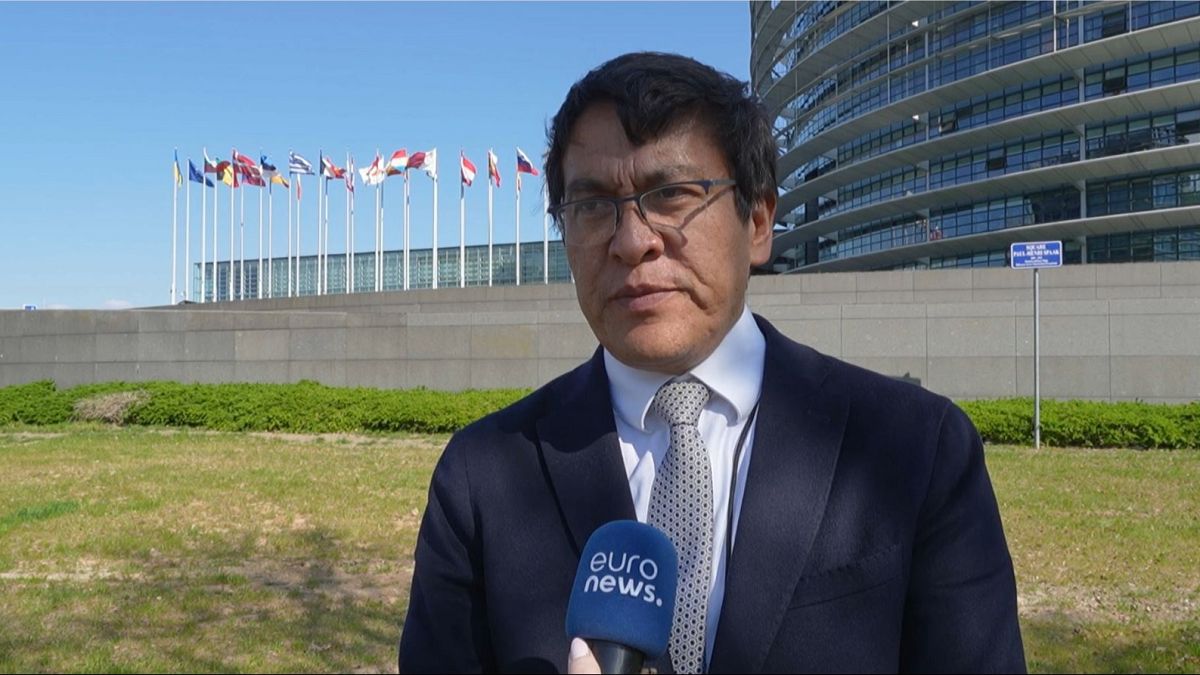EU and Central Asian are set for historic new impulse in their relationship, Kyrgyzstan’s Deputy Prime Minister Edil Baisalov told Euronews, as the two regions’ leaders convened more than 5,000 kilometres away in Samarkand, Uzbekistan, for the first EU–Central Asia Summit.
Baisalov was interviewed in Strasbourg where he was meeting MEPs and the Council of Europe to promote closer cooperation between the European Union and the increasingly assertive Central Asian states, which he described as the future “tiger economies” of the region.
Speaking to Euronews between meetings, Baisalov welcomed the momentum generated by the Samarkand summit, which brought together high-level officials from both blocs.
“In today’s changing world, where the whole current world order is being shaken with these great tectonic shifts in geopolitics, we need reliable partners,” he said.
“This historic summit in Samarkand will give a new impulse to bilateral relations of each Central Asian country, but also region to region, our continents, Europe and Central Asia. The whole region will be closer, and this will benefit all the people inside our regions,” he added.
New transport corridors and deeper ties
Among the opportunities for collaboration, Baisalov highlighted plans for a new transcontinental railway that would link Kyrgyzstan to China, potentially transforming trade routes between Europe and Asia.
“It will provide the shortest route for tens of millions of tonnes of railroad cargo. It will provide a shortest route between Paris and Shanghai,” he said.
He said Kyrgyzstan sees the EU as a partner of choice due to its “privileged position” and because it “remains a very active source not only of technologies but also ideas”.
The deputy prime minister also underlined the EU’s appeal in the education sector, noting Europe’s “high-level education with top universities” as particularly attractive for Kyrgyz students.
He called for a relaxation of visa rules for young people, saying: “They do want to come and experience the great culture of European capitals.”
A region open for investment
Baisalov made a strong pitch for greater EU engagement in Central Asia, positioning the region as a promising partner for trade, investment and innovation.
“We believe that in the next decade, the quality of life, our GDP, will grow five or six times at least,” he told Euronews. “It’s not only because we are reaching mineral resources, critical minerals and a young population, but also because we have experienced some good learning, and we are ready to make the leap.”
In a nod to the region’s economic ambitions, he added: “In Kyrgyzstan our national animal is the snow leopard. Together with the five Central Asian countries, we have the ambition to become the tiger economies of Southeast Asia.”
Shared democratic challenges
Asked whether democratic processes and the rule of law would be part of the discussions in Samarkand, Baisalov said such issues were not a major concern in Kyrgyzstan, shifting the focus to Europe’s internal struggles.
“There are many concerns here in European capitals. I think our democracies are experiencing the same problems with the rise of social networks,” he said, adding: “We need to review the concept of free speech. We need to review the concept of freedom of rallies.”
Baisalov argued that both established and emerging democracies are facing common dilemmas in the face of rapid digital transformation.
“This new world of artificial intelligence… I think old democracies and new democracies – we are facing the same challenges and we will be seeking answers to that together.”

